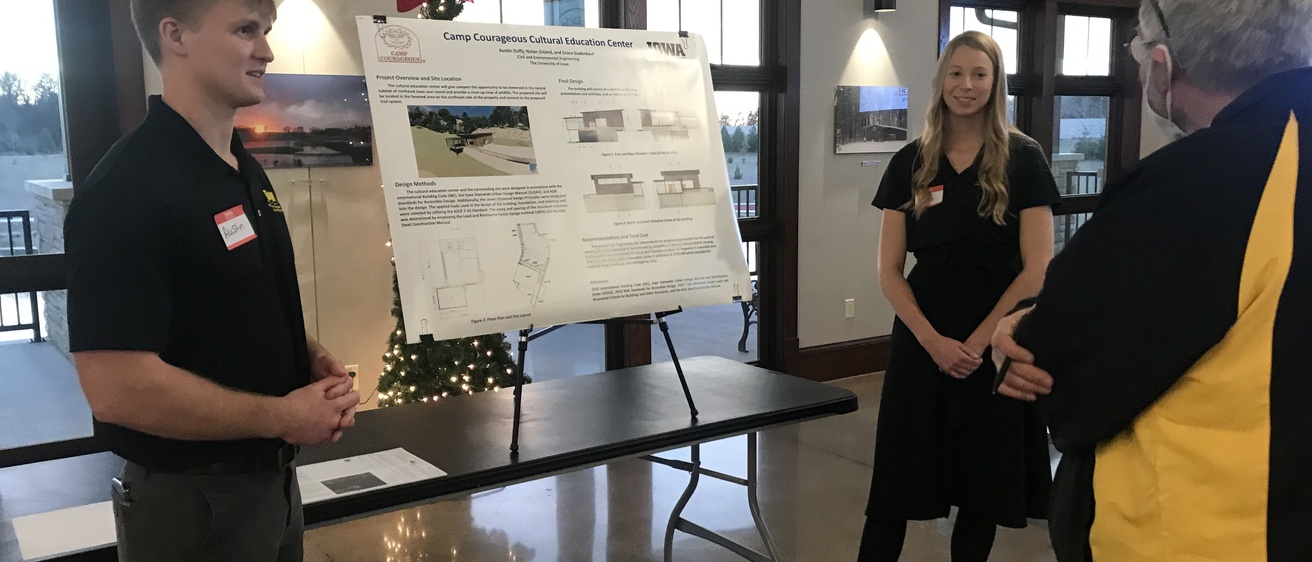MONTICELLO -- University of Iowa students will present strategies today for undeveloped areas of Camp Courageous that will help improve water quality and provide new experiences for campers.
Four teams of University of Iowa faculty and staff will present their plans on 24 acres of Camp Courageous, 12007 190th St., Monticello, which includes designs involving a multipurpose trail system, a nature education center, stormwater management plans, and systems for reducing contaminants in source water.
“We’re really hoping people will come and ask questions and understand what we’re going to do,” camp volunteer coordinator Jeff Pitlik said.
Camp Courageous is a year-round recreational and respite care facility for individuals of all ages with disabilities.
This project began when Pitlik contacted Maquoketa River Watershed Management Authority. Pitlik met up with Lori Scovel, executive director of Limestone Bluffs RC & D, a fiscal agent of the Maquoketa River Watershed Management Authority, with a passion for promoting growth and sustainability in rural Iowa communities and a grant writer and project manager.
A partnership emerged along with the opportunity to work with University of Iowa students to develop the watershed plan.
The cost of the project and ways to pay for it are still being explored, Pitlik said.
Water quality is "very complex problem that affects human health, wildlife and every water body downstream of the Maquoketa River,“ Scovel said.
The project at Camp Courageous will allow community leaders, elected officials, farmers and other residents to see several practices in place to improve water quality.
“Creating a way for campers and guests to access and view installed practices, and the wildlife we anticipate will be drawn into the areas, became a key component to the projects,” Scovel said. “We all live in a watershed and education is key.”
Proposed strategies for improving water quality include utilizing cover crops on agricultural land to improve soil health and better filter out contaminants before they reach streams and ground water, and slowing storm water run-off to allow for better management of flooding, Scovel said.
Pitlik said some of these strategies might be “costly” to farmers, but “it’s the right thing to do for the environment.”
Camp Courageous was founded in 1972. Today, it serves nearly 10,000 individuals with special needs through a year-round program. The camp runs primarily on donations and through the support of projects.
